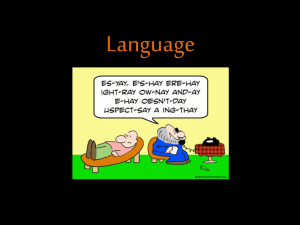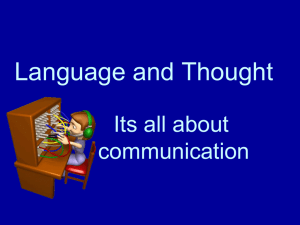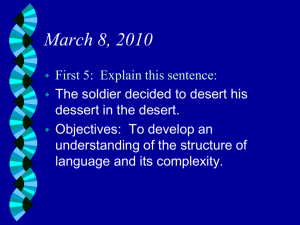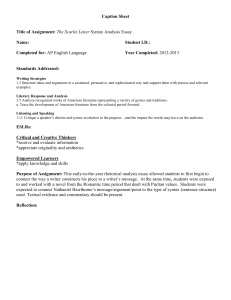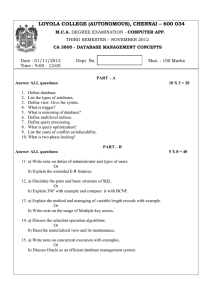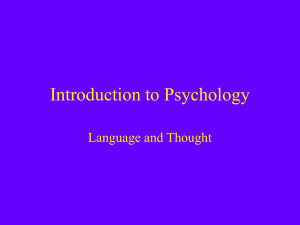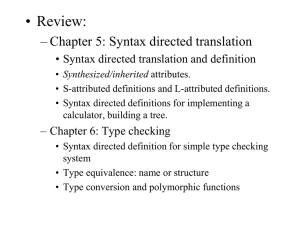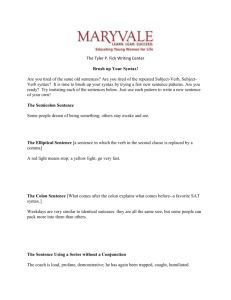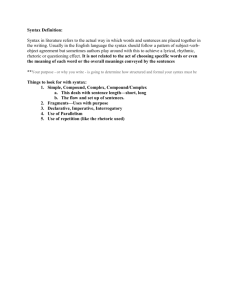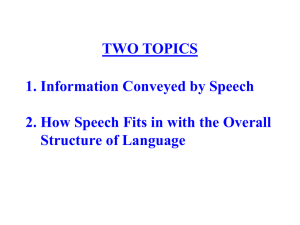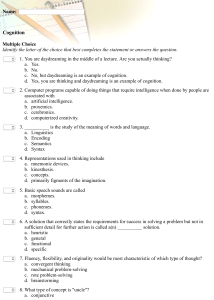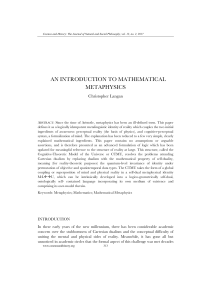Lecture 10 - Language and its Acquisition (part 1)
advertisement
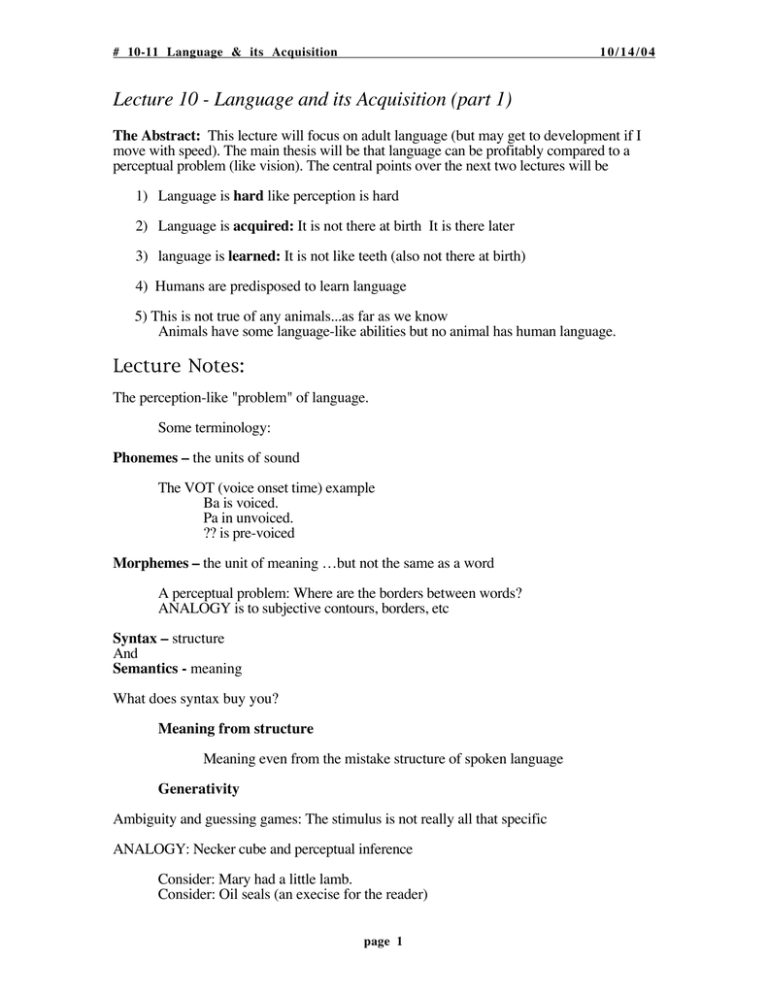
# 10-11 Language & its Acquisition 10/14/04 Lecture 10 - Language and its Acquisition (part 1) The Abstract: This lecture will focus on adult language (but may get to development if I move with speed). The main thesis will be that language can be profitably compared to a perceptual problem (like vision). The central points over the next two lectures will be 1) Language is hard like perception is hard 2) Language is acquired: It is not there at birth It is there later 3) language is learned: It is not like teeth (also not there at birth) 4) Humans are predisposed to learn language 5) This is not true of any animals...as far as we know Animals have some language-like abilities but no animal has human language. Lecture Notes: The perception-like "problem" of language. Some terminology: Phonemes – the units of sound The VOT (voice onset time) example Ba is voiced. Pa in unvoiced. ?? is pre-voiced Morphemes – the unit of meaning …but not the same as a word A perceptual problem: Where are the borders between words? ANALOGY is to subjective contours, borders, etc Syntax – structure And Semantics - meaning What does syntax buy you? Meaning from structure Meaning even from the mistake structure of spoken language Generativity Ambiguity and guessing games: The stimulus is not really all that specific ANALOGY: Necker cube and perceptual inference Consider: Mary had a little lamb. Consider: Oil seals (an execise for the reader) page 1 # 10-11 Language & its Acquisition 10/14/04 How is ambiguity resolved? Obeying cognitive / working memory limits What is wrong with this sentence? The cow the moose the chicken liked pushed fell. Implict vs explicit knowledge of grammar/syntax OK: What does a baby know? The Development of Language (maybe not until next week) All kids learn language in about the same way. Stages: I. Pre-linguistics (googoo etc) Phonemes and word boundaries II. One-word stage (12-18 mo) Morphemes III. Two-word (telegraphic speech) (2 yrs) Elementary syntax Word order IV. More than two words (there is no discrete three word stage) What is the child learning as he/she learns language? East Coast and West Coast views East Coast: Instances and rules. West Coast: Instances in a giant network produce what looks like rules page 2
